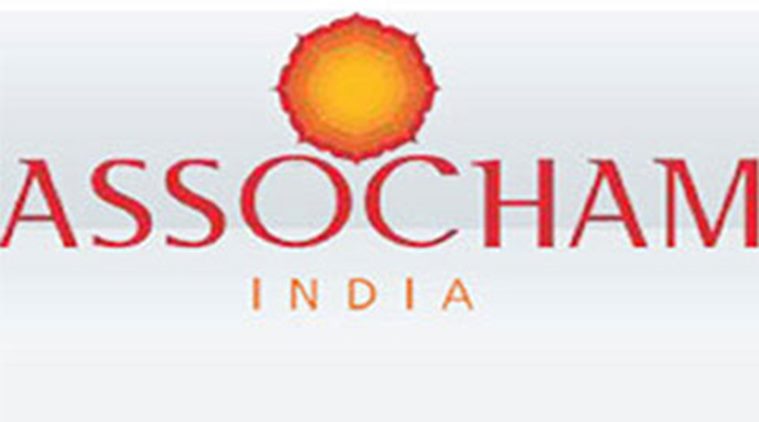Empowering Women through skills contribute to the GDP: Experts at ASSOCHAM’s ‘Wisdom Series’
New Delhi: The Associated Chambers of Commerce and Industry of India (ASSOCHAM), one of the apex trade associations of India in association with ITC Sunfeast concluded the fourth edition of its Wisdom Series lecture titled ‘Role of Women Entrepreneurs’ on the theme of ‘Aatmanirbhar Bharat – Vocal for Local – Moving towards Self-Reliant India’. The event saw an expert panel consisting of Ms Ritu Beri, Fashion Designer, Dr. Blossom Kochhar, Chairperson, Blossom Kochhar Group of companies and Ms. Seema Jindal Jajodia, Founder, Nourish Organics hold an insightful discussion on building successful entrepreneurial grounds to boost and encourage women participation in building an Aatmanirbhar Bharat.
The panellists at large deliberated on how to promote local MSMEs and industries to achieve a self-reliant India in an engaging webinar. Emphasizing the need for skilling and continuous knowledge upgradation across the country to reach this goal, Dr. Blossom Kochhar, Chairperson, Blossom Kochhar Group of companies said, “Every woman needs to be empowered and the best way to do it is skilling. Skill them to become entrepreneurs. I too started from a little place, they can start anywhere, it does not even have to be a town. During COVID times, I figured that they need not rent an entire place, they can also get a big space together and then work. It is an easy and empowering way. We have to realise that when you empower a woman you also help her to contribute to the GDP of the country as she gets to provide for her family.”
Further elaborating on the topic, Dr. Kochhar spoke on boosting rural female entrepreneurship through co-operatives. “There is a lot of scope for them in wellness and they can also get into manufacturing of incense sticks, soaps, candles and others. You can form them into small co-operatives or collectives to start manufacturing items like these and then finding a buyer for the product so that the product is exposed to the outside world. The way to boost them is to help them start on their own.”
Mr. Anil Rajput, Chairman, FMCG Council on Brand Promotion & Brand Protection, ASSOCHAM, highlighting the importance of women entrepreneurs in achieving Hon’ble Prime Minister’s clarion call of Vocal for Local said, “India currently has 48.04% female population compared to 51.96% of male population. Thus, it is critical for national objectives to have active and robust participation of women in all sectors. This will chart development for the country that is both inclusive as well as far reaching. While societal mindsets have historically served as impediments to women’s success, but social thinking is now evolving to view women in roles outside the home. Increasingly, women are shattering the glass ceiling and emerging victorious in their endeavours. The wide spectrum of women entrepreneurs in a leadership or impactful position stand testimony to this.”
Ms. Seema Jindal Jajodia, Founder, Nourish Organics laying out the blueprint for female entrepreneurial mindsets in terms of coming across the right product or service to create said, “Think in terms of what does my family, friends and the people around me need and try to match your passion with those needs, then you have a winner on your hand. It is also crucial to believe in your product. You must believe that you have a truly great product and once people discover it, they will never leave it. They will stick to your brand and like what you are providing to them.”
She also added that for entrepreneurs just starting on their journey, having a parallel funding in the forms of a job or other source of income can help to keep them funded till they can start earning from their start-up.
The panellists of path-breaking entrepreneurs also shared the experiences and the obstacles they faced in their journey from a start-up to an established business. Ms Ritu Beri, Fashion Designer, shared how she worked to launch a fashion label at a time when India was yet to witness the birth of a fashion industry. “Thirty years ago, when I launched myself as a designer, it was a challenge, there was nothing I could look at like a map or inspiration. There was no fashion industry then in India, people were not so conscious about their daily dressing, they used to only dress for weddings and occasions. So, it was both easy and difficult at the same time for me.”
The expert speakers while sharing nuggets of their success stories also mentioned how Make In India is slowly shaping up in India and has steadily changed sourcing of raw materials for some businesses. Dr. Kochhar mentioned how initially lavender for her aromatherapy products had to be imported from France as they were not produced in India, however, now her raw resources are majorly received from various corners of the country and the final product exported. Ms. Jajodia also added that her first batch of products was completely made from raw materials sourced from abroad as back then organic food materials existed only for rice and dal. But that has now changed as more and more ingredients have been brought under organic farming in India.
However, the panellists agreed that for the country’s produce to meet global standards, quality products need to be delivered on time while maintaining competitive pricing at home as Indians continue to be price conscious buyers.

